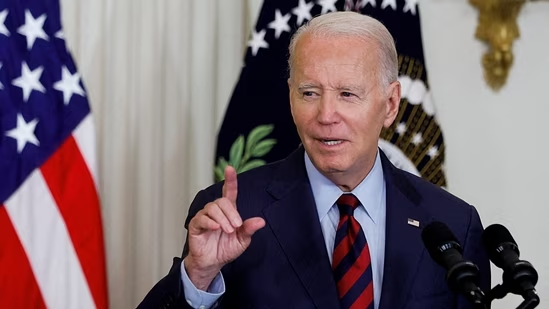Biden’s Crypto Pivot: Pantera Capital’s Analysis

QuickTake
- Pantera Capital believes President Biden’s recent moves in the crypto space are genuine.
- Biden vetoed a bill seen as pro-crypto, but analysts suggest this was to support his appointed SEC Chair, not oppose crypto.
- The President’s administration shows signs of supporting digital assets and innovation.
- Biden’s stance is more subtle compared to the outright pro-crypto stance of some Republican candidates.
- The administration is working with Congress to establish clear regulations for cryptocurrencies.
Biden’s Crypto Stance: Analyzing Pantera Capital’s Perspective
Pantera Capital, a prominent hedge fund specializing in digital assets, asserts that President Joe Biden’s recent actions in the crypto industry reflect a genuine and strategic pivot. Despite vetoing a bill perceived as supportive of the crypto sector, Biden’s administration is demonstrating a nuanced approach towards digital assets. This article delves into Pantera Capital’s analysis, exploring the implications of Biden’s actions and the broader context of crypto regulation in the United States.
The Veto: Understanding Biden’s Decision
President Biden recently vetoed a bill aimed at overturning a contentious piece of guidance from the Securities and Exchange Commission (SEC). This guidance, known as Staff Accounting Bulletin 121 (SAB 121), discourages large US banks from offering extensive crypto custody services. While this move might appear to be anti-crypto, Pantera Capital analysts Cosmo Jiang and Erik Lowe argue that the veto is more about supporting SEC Chair Gary Gensler than opposing the crypto industry.
Jiang and Lowe, both key figures at Pantera Capital, explain that Biden’s decision likely stems from a reluctance to publicly challenge Gensler, his appointed commissioner. The analysts note that presidents typically respect the independence of regulatory agencies from the executive branch, and Biden’s veto could be seen as an effort to maintain this principle.
Biden’s Quiet Support for Crypto
Despite the veto, Pantera Capital suggests that Biden’s administration is quietly supportive of the crypto industry. The analysts highlight that Biden is taking a more subtle approach by encouraging the SEC to revise the rule internally rather than overturning it through legislative means. This strategy, they argue, allows Biden to support crypto innovation without directly opposing his appointed officials.
Moreover, Biden’s administration has expressed eagerness to collaborate with Congress on establishing rules for the crypto sector. This commitment to regulatory clarity indicates a shift towards fostering responsible development of digital assets. The White House’s statement about promoting payment innovation and reinforcing the United States’ leadership in the global financial system further underscores this supportive stance.
The FIT21 Act: A Step Towards Regulatory Clarity
Another significant indicator of Biden’s evolving approach to crypto is his administration’s handling of the FIT21 Act. Unlike the vetoed SAB 121 resolution, Biden did not veto the FIT21 Act, a more substantial pro-crypto bill that passed the House of Representatives in mid-May. This bill represents a significant step towards creating a well-defined regulatory environment for cryptocurrencies.
Pantera Capital notes that the FIT21 Act will likely undergo changes as it progresses through the Senate, but its advancement reflects a broader push to balance regulation with innovation in the crypto space. This legislative move signals that the administration is open to crafting policies that support the growth and development of the crypto industry.
Political Dynamics: Crypto in the Presidential Race
The issue of cryptocurrency has become increasingly prominent in the lead-up to the US presidential election. Republican candidates, particularly Donald Trump, have positioned themselves as strong supporters of the crypto industry. Trump, for instance, has hosted Bitcoin miners and non-fungible token (NFT) investors at his Florida resort, Mar-A-Lago, and has even accepted campaign donations in cryptocurrency.
In contrast, Biden’s approach is more measured. While he has not taken an outright pro-crypto stance, his administration’s actions suggest a cautious yet positive outlook towards digital assets. This nuanced position could be a strategic move to attract crypto voters without alienating other political allies.
Influences on Biden’s Crypto Policy
Several influential figures in US politics have shaped Biden’s approach to cryptocurrency. Senator Elizabeth Warren, a known crypto skeptic, and SEC Chair Gary Gensler are notable figures pushing for stringent regulations. Their influence has undoubtedly impacted the administration’s cautious stance on crypto-related legislation.
However, recent reports indicate that Biden’s presidential campaign is reaching out to the crypto industry, signaling a potential shift in strategy. This outreach suggests that Biden recognizes the growing importance of the crypto voter bloc and is willing to engage with the industry to some extent.
Conclusion: A Balanced Approach to Crypto Regulation
In summary, Pantera Capital’s analysis presents President Biden’s actions in the crypto space as part of a sincere and strategic pivot. While his veto of the SAB 121 resolution might appear to contradict this narrative, it is more about maintaining regulatory independence and supporting appointed officials than opposing crypto. Biden’s administration has shown a willingness to work with Congress to establish clear and responsible regulations for digital assets, signaling a positive shift towards fostering innovation in the crypto industry.
As the US presidential election approaches, the crypto industry will continue to be a significant topic of discussion. Biden’s balanced approach, contrasted with the more overtly pro-crypto stance of some Republican candidates, reflects the complex dynamics of crypto regulation in the United States. Pantera Capital’s insights provide a valuable perspective on the evolving landscape of digital assets under the current administration.



